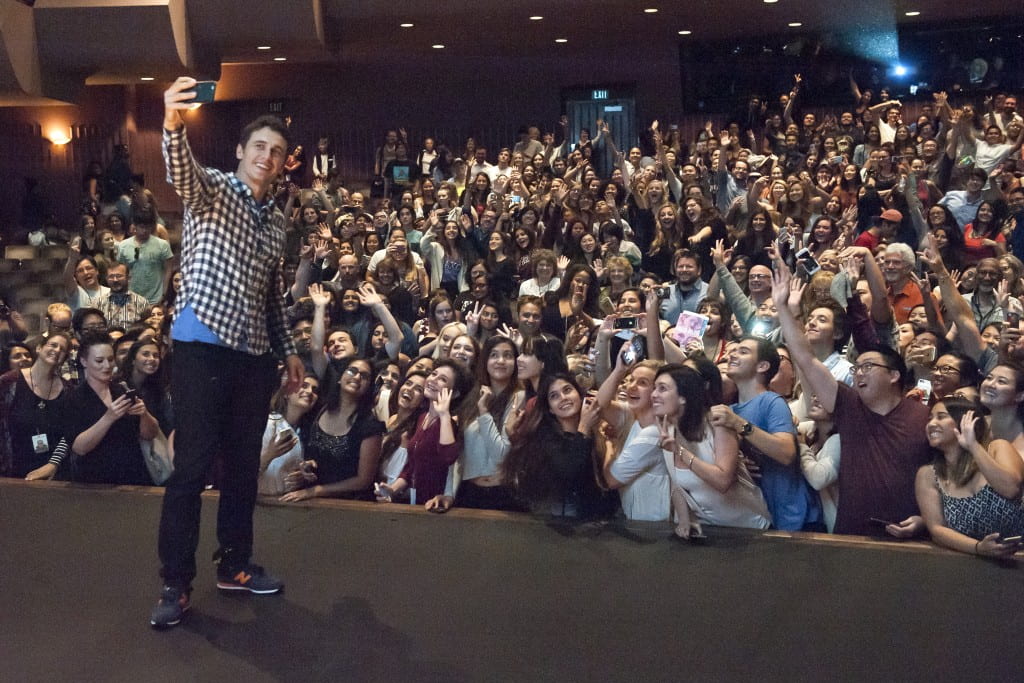James Franco spills, thrills at UCI event
Actor discusses his craft before packed audience as part of Illuminations series

Actor-writer-heartthrob James Franco spoke to a sellout crowd Saturday, Oct. 3, at the University of California, Irvine as part of Illuminations, an arts and culture initiative established by UCI Chancellor Howard Gillman.
Although Franco is perhaps best known for his roles in “Freaks and Geeks,” “Spider-Man,” “127 Hours” and “Pineapple Express,” he has dabbled in several other pursuits, including sculpture, teaching, Broadway theater, poetry and serving as the face of a Gucci cologne.
At UCI’s Irvine Barclay Theatre, he discussed his creative process, recounted various artistic achievements and even snapped a giant selfie with the audience.
Q: What do you think made “Freaks and Geeks” different from all the other television shows at the time related to youth culture, and how did your personal life affect your character on the show?
A: I think what set “Freaks and Geeks” apart is that the other shows were following the cool and popular kids. The driving concept of our show was to not follow those people. It was a way for Paul Feig and Judd Apatow to write about their high school experiences. We rewrote characters to fit the actors so that the performances would be more personal. For example, when I dropped out of UCLA and worked at McDonald’s, I wanted to do an episode about my character, Daniel, getting a job.
Overall, the show was pretty dark, or at least had a darker tone, since the characters didn’t usually get what they wanted.
Q: What is your artistic and creative process when playing a role now compared to when you were just starting out in your career?
A: When I was a younger actor, I didn’t quite understand all the dynamics in moviemaking. For me, acting was the absolute centerpiece. But in filmmaking, lots of different components go into telling the story – not just the acting. In my early roles, I prepared in isolation, never talking to the directors or anyone else. At a certain point, I realized that was the wrong thing to do. I would show up on set with an idea that turned out to be completely different from the director’s image. Now I make sure to research in conjunction with the director so that we have this collaborative image of what we want in the film.
Q: Your novel Palo Alto consists of different stories, mostly about young adult males, so why did your film adaptation focus only on the story about April, a female character?
A: When I went back to UCLA, I’d already been in the film industry for a while, and so I naturally thought, “How would this book work as a movie?” But instead of directing it myself, I asked myself, “What if I got somebody else to do it?” If I could find a younger director closer in age to the characters in the book, she could shed a new light. That was when I asked Gia Coppola to direct the film. I wanted her to take the adaptation and make it different.
She was the one who carved out and highlighted April’s narrative for the movie, and it ended up becoming the central focus of the film. Because she could relate to April so well, it was something completely different, and I loved that. It was exactly what I wanted.